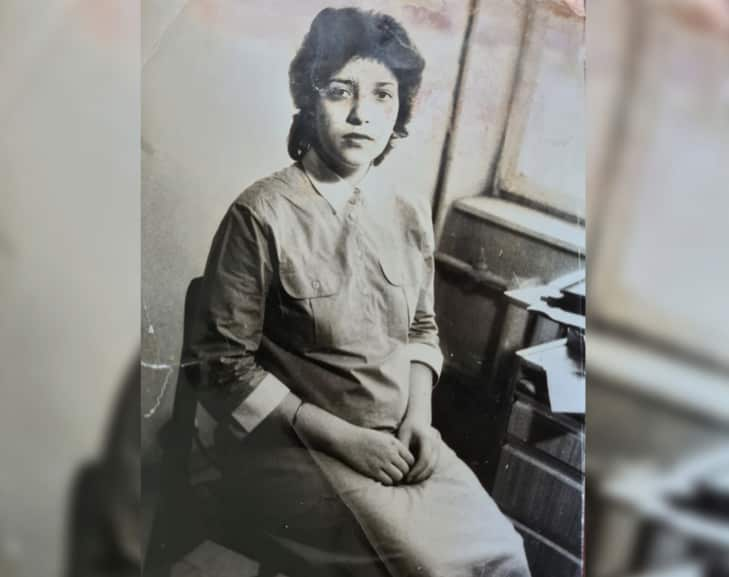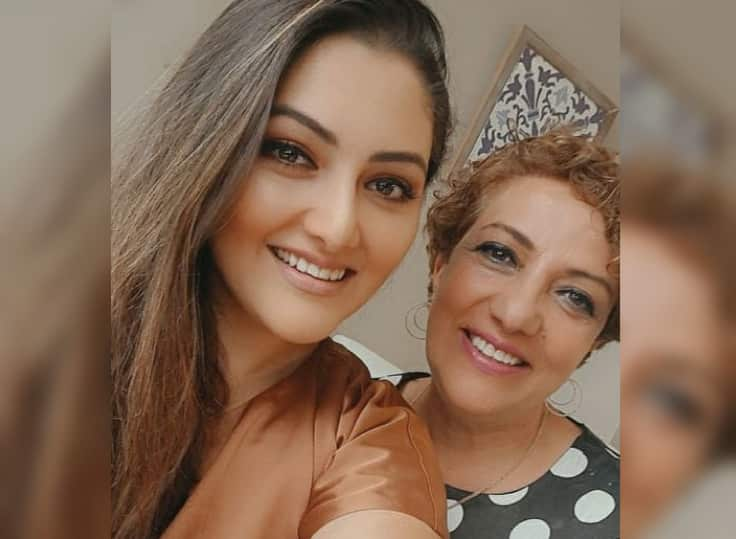It’s the Autumn of 1991 and word has spread that the Taliban are gaining power and will soon topple Kabul.
My mother - born and raised in Afghanistan - is nine months pregnant with me and eagerly awaiting my arrival.
“Hurry up and come out,” she keeps saying.
One week later, she makes an escape to Tajikstan and enters Australia three months after that via Russia, along with my father, a six-year-old, and a newborn.
It was supposed to only be a short stay to see my aunts who lived here, but with fighting erupting in Afghanistan she knew there was no going back. Today, as we witness the horrific scenes at Kabul airport, the exasperated faces of the men, women and children strike a tender chord for those who have already fled persecution.
Today, as we witness the horrific scenes at Kabul airport, the exasperated faces of the men, women and children strike a tender chord for those who have already fled persecution.

Elly's mother Fatma Kohistani in Kabul, 1991. Source: Supplied/Elly Kohistani
“Taliban is coming, help get me out, please save me,” a woman screams in one video posted on Twitter. Tears are flowing down her face as she stands behind a fence separating her from United States soldiers.
When comparing then and now, there is a reoccurring pattern; a failed western foreign policy, a power vacuum, and a humanitarian disaster.
Australia’s response falls short, following the footsteps of the US in absolving itself of all moral and legal responsibility in the re-emergence of a more sophisticated extremist group, two decades after they first got involved.
While Australia works to evacuate its own people, visa holders, and Afghans who assisted them, Prime Minister Scott Morrison has made clear that not all interpreters and other staff who helped in its 20-year mission can be saved.
There has also been no increase, so far, in the 3,000 places announced for Afghans on Australia’s humanitarian program. To say it simply, it is not good enough.
NATO partners including the UK and Canada with 20,000 humanitarian visas each for Afghans.
Australia co-signed a but has not yet shown support to hold a in Geneva next week, which could result in human rights abuses on the ground being investigated and prevented.
So I ask this: have the past 20 years taught us nothing about ignoring Afghanistan and dismissing it as a failed state?
On top of the 3,500 coalition deaths since 2001, 69,000 Afghan security force personnel have lost their lives along with 51,000 civilians, according to Brown University. And for the more than half a million internally displaced people this year, ongoing intergenerational trauma will result from the world’s longest war.
Today, the same extremism the US and its allies sought to obliterate in the so-called ‘war on terror’ has emerged with a different face, and this time on a red carpet laid down in Doha last year when the Taliban were given a seat at the negotiating table.
It is set to go down in history as another intervention that went horribly wrong.
The time is now for Australia to step in and take action: introduce additional humanitarian visas for Afghans - in particular for those who assisted NATO forces. Cut the immigration red tape, give people on temporary visas permanent residency. We owe them this much for our complicity in what is unfolding. Twenty years since my mother fled, I now find myself five months pregnant and glued to the screen, listening to my family’s stories about their escape. It’s a double-edged sword of gratitude and guilt that plagues most second-generation Afghans.
Twenty years since my mother fled, I now find myself five months pregnant and glued to the screen, listening to my family’s stories about their escape. It’s a double-edged sword of gratitude and guilt that plagues most second-generation Afghans.

Sydney woman Elly Kohistani and her mother today. Source: Supplied: Elly Kohistani
“You were our lucky token,” my mother says. “We lost everything; our families, homes and everything familiar to us, but gained a child”.
I can’t help but wonder if my child will soon see our motherland the way I saw it during my childhood; dark-eyed murdering men, public executions of women, and the eradication of art, music and culture.
We are here. We are safe. But what about those who haven’t made it out?
This is not a dream, I keep telling myself. This is really happening, again.
Elly Kohistani recently graduated from UNSW with a master’s degree in international law and international relations. She is currently working with a group of volunteers to collate a list of resources to help Afghans impacted by the crisis. To be added to the project’s mailing list visit
Would you like to share your story with SBS News? Email





